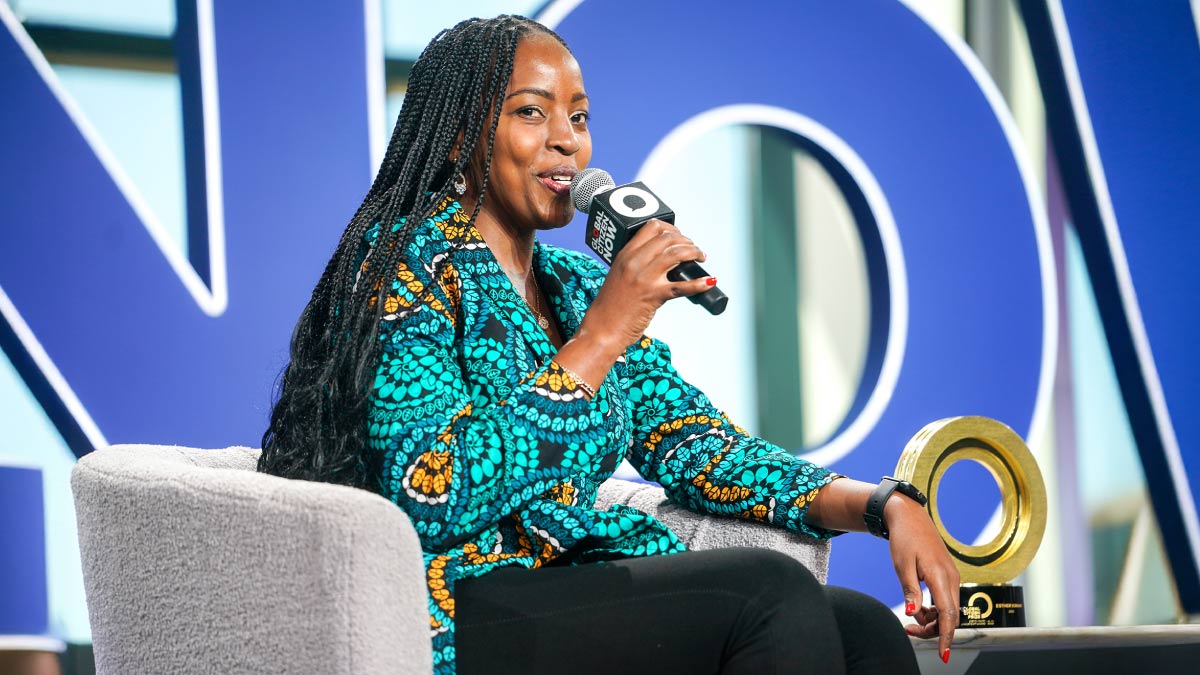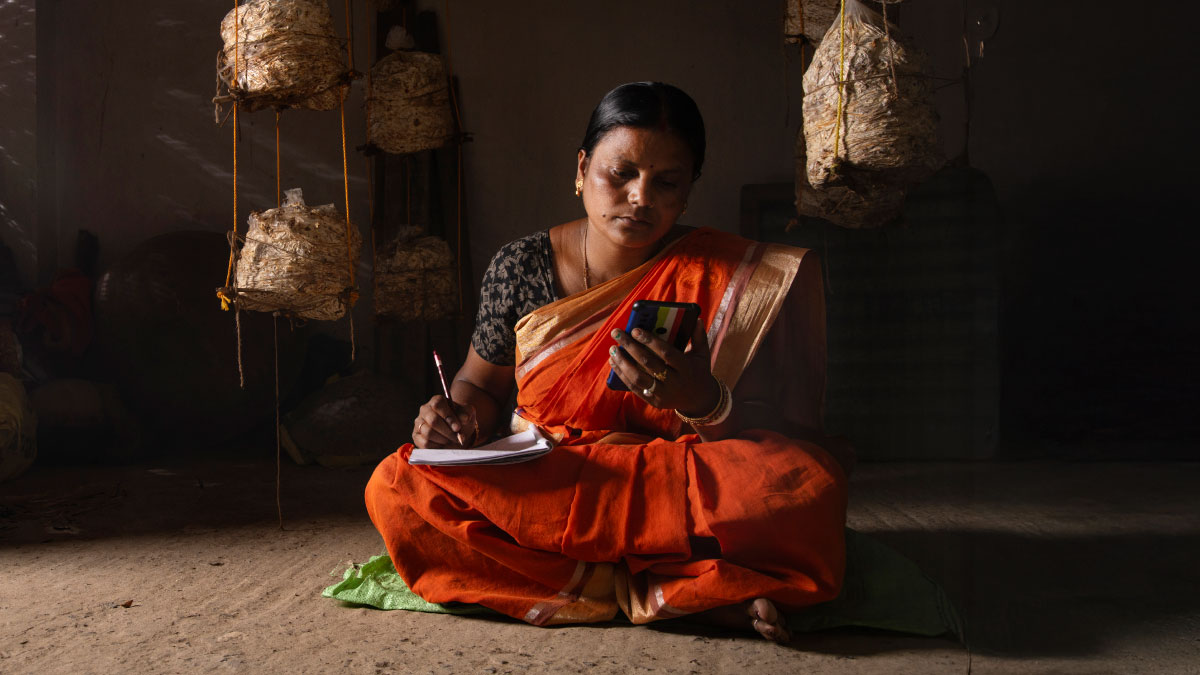“A commitment to diversity and inclusion at Cisco requires more than just talking about what we are doing right. True change comes when we can confront our differences around the full spectrum of diversity (inclusive of gender, ethnicity, race, orientation, age, ability, veteran status, religion, culture, background, experience, strengths and perspectives, etc…) and understand how those differences impact how we work and view the world. Raising awareness of where we face challenges, and where we have opportunities to be more inclusive is the hard, but necessary and rewarding work.” — Alex Allen
Inclusion and diversity demand more than just good intentions. Too often, divisions have deep roots. And untangling them demands work and commitment.
At Cisco there’s a constant re-evaluation of the company’s progress — along with its shortcomings. Because whether race, religion, gender, sexual orientation, age, disabilities, neurodiversity, or other differences are at play, misunderstandings can arise. And raising awareness can be challenging (but also rewarding!).
One way to raise awareness is by simply bringing people from diverse backgrounds together — to connect, share ideas and experiences, and encourage the sometimes awkward, often enlightening conversations that bridge divides.
Spearheaded by Alex Allen, senior director of Inclusion and Collaboration for Cisco’s Go-to-Market Strategy, the company’s Proximity Initiative is an effort to bring company leaders closer to employees from underrepresented communities throughout the organization.
“As a Black / African American person, I was always fighting this duality, this fear of marginalization,” he explained. “When I have had an authentic and transparent conversation with an executive that has truly invested time in understanding me as a human, it’s brought us closer, and increased trust. And my loyalty to those individuals was, and is, tremendous! So, I said, we need to get leaders proximate to the people who are different from them, to better understand their lived experience.”
Sparking the dialog
Under Allen’s leadership, the company has done just that, to the tune of 2,500 such meetings since 2019.
Allen was inspired by Bryan Stevenson, the lawyer, author, and founder of the Equal Justice Initiative in Montgomery, Alabama, who has written of the Power of Proximity. In particular, Allen was moved by a live talk he attended in 2019 between Stevenson and Cisco CEO Chuck Robbins. That was soon after he came on board at Cisco.
“I was blown away,” Allen recounted, “that they were having a conversation around racial injustice and mass incarceration in the U.S. Never in my career at any one of the large companies at which I’ve worked was there ever a courageous conversation like that. Never heard it. But I was super impressed with Cisco’s courage to have this conversation in San Jose for the benefit of the whole company.”
The conversation also got Allen thinking more deeply about the concept of proximity, and how it could be applied at Cisco.
“Bryan said something in that session that really struck me,” Allen explained. “He said, we have to commit ourselves to getting proximate to the poor, to the excluded, to the marginalized. When you are proximate, details emerge, insights emerge, understandings emerge, that you will not achieve from a distance. There is power in proximity.” And I thought about my own career. I asked, who in my career have been proximate enough to me to understand my experience? I could think of very few.”
The Proximity Initiative has been making connections ever since.
Multiple regions, multiple divides
Richard Everard is one Cisco leader who has benefitted from the Proximity Initiative. As Cisco’s service sales leader for Europe, Middle East, and Africa, he deals with diversity on a large scale every day. And leading a team that varied demands empathy and understanding across racial, cultural, and national divides. That can even come down to sharing a joke.
“Sometimes things can be interpreted differently in different cultures,” Everard said. “I tend to be pretty humorous, and some cultures do not find that professional. But through Proximity, they can get a little more used to me, while I’ve adapted my style as well.”
At the same time, Everard has had his own challenges. He struggled with a learning difference growing up and has mixed-race parents.
“People don’t see that when they see me,” he said, “they see light-coloured skin. But my mother’s brown, my brother's brown. And I remember being called all kinds of names, because kids knew my mother and knew where I lived. That does shape your insecurities.”
Proximity can mean different things in different regions as well, as Everard has found.
"Prejudice comes in many forms,” he said, “I’ve seen this in multiple countries where my teams sit. It’s been an eye-opener for me.”
Sometimes, those biases can be unconscious, and even the most well-meaning people can fall short of their best intentions.
“To me, proximity is an entry point,” Everard said. “On the one extreme, you’ve got people that totally understand. We don’t need to do much with those people. They are already advocates. On the other extreme, people may not be willing to engage and do not understand the value of diversity. But then there are those in the middle.
Expanding the awareness of that middle group, Everard believes, is a core goal of the Proximity Initiative. Sometimes the biggest barrier is simply a fear of saying the wrong thing.
“Many of them actually would like to do something about it,” Everard added, “but they're scared of saying the wrong thing. And it’s important to have those conversations that might make you uncomfortable. Proximity allows people to practice those conversations.”
Out of those sometimes-awkward beginnings, true understanding can result.
“We need people talking and being comfortable about our differences across the full spectrum of diversity,” said Allen, … proximity is a wide topic.”
The ultimate goal is for everyone to feel they can be their fully authentic selves.
“In this job, I’m the most authentic I’ve ever been in my life,” said Allen. “Our culture is evolving and we’re all on this journey together. But I think Cisco is just incredible with its purpose of powering an inclusive future for all. We’re gaining a lot of momentum.”
Here are some ways you can get more proximate:
- Reach out to someone who is different from you and share your life experiences
- Learn about different cultures and the lived experience of people who identify as different from you
- Reflect on your own experience and how you see the world.
For questions about the program contact us at Get-proximate@cisco.com.
###




